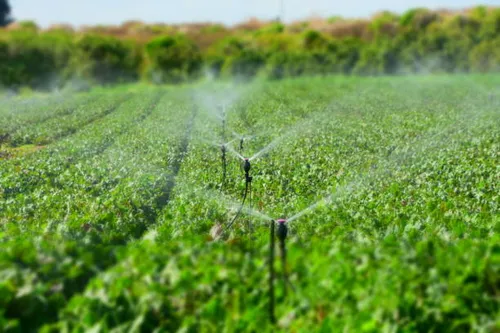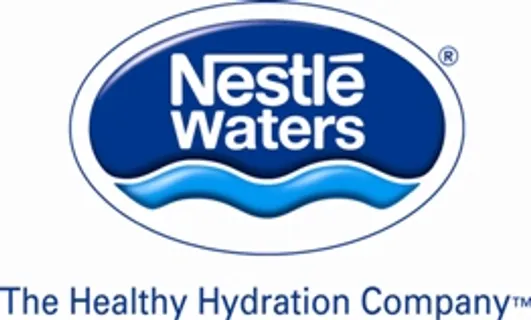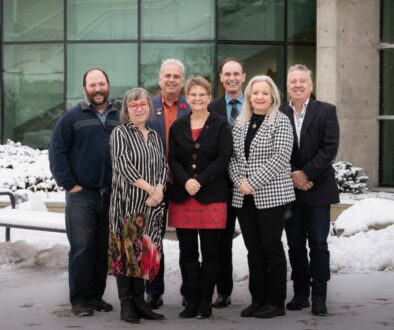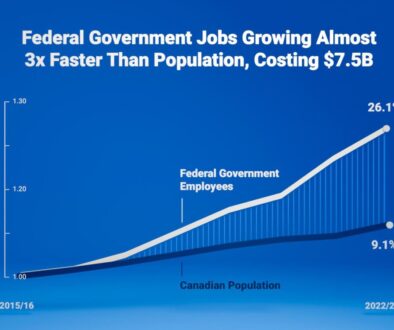Urban farming under attack – From water rights to carbon hysteria
In recent times, an alarming trend has emerged that could cast a long shadow over the livelihoods of farmers—the guardians of our lands and the backbone of our communities. This unsettling phenomenon revolves around an unsettling declaration: Farmers are being stripped of their water rights, threatening the very essence of their work.
The water cycle as per earthobservatory.nasa.gov:
“Studies have revealed that evaporation—the process by which water changes from a liquid to a gas—from oceans, seas, and other bodies of water (lakes, rivers, streams) provides nearly 90% of the moisture in our atmosphere. Most of the remaining 10% found in the atmosphere is released by plants through transpiration. Plants take in water through their roots, then release it through small pores on the underside of their leaves. In addition, a very small portion of water vapour enters the atmosphere through sublimation, the process by which water changes directly from a solid (ice or snow) to a gas. Together, evaporation, transpiration, and sublimation, plus volcanic emissions, account for almost all the water vapour in the atmosphere that isn’t inserted through human activities. While evaporation from the oceans is the primary vehicle for driving the surface-to-atmosphere portion of the hydrologic cycle, transpiration is also significant. For example, a cornfield 1 acre in size can transpire as much as 4,000 gallons of water every day.”

But it seems the benefits of farms from such things as transpiration are being dismissed, and farmers and their animals are the newest targets of global agendas. The ignorance of the value of farms goes beyond their role in sustenance—it extends to the delicate balance of ecosystems, the security of our food sources, and the interwoven fabric of our lives. Farmers are viewed as contributors to climate concerns, and carbon emissions. Akin to Shakespeare’s comedies, where mistaken identities lead to chaos, the perceived contributions of cow emissions, the ‘carbon sequestration’ claims of forests over fields, and the ‘water hogging’ in agriculture are distorting realities.
People have seemed to forget that this minuet gas that makes up .04% of the atmosphere, is essential for all life on earth and a major social benefit of increasing CO2 in the atmosphere is the indisputable science that it increases the amount of food that plants produce through what is known as CO2 “fertilization.” More CO2 means more food.
Sylvan Wittwer, the father of agricultural research on this topic, emphasized the enormous benefits of rising CO2 worldwide: “The rising level of atmospheric CO2 could be the one global natural resource that is progressively increasing food production and total biological output, in a world of otherwise diminishing natural resources of land, water, energy, minerals, and fertilizer. … The effects know no boundaries and both developing and developed countries are, and will be, sharing equally.… [for] the rising level of atmospheric CO2 is a universally free premium.
One of the principal benefits plants receive from elevated levels of atmospheric CO2 is an increase in their water use efficiency. At higher CO2 levels, plants generally do not open their leaf stomatal pores as wide as they do at lower CO2 concentrations. The result is a reduction in most plants’ rates of water loss by transpiration ….At higher atmospheric CO2 concentrations, plants need less water to produce the same — or an even greater — amount of biomass.” Elevated CO2 levels impact water use efficiency, providing plants the ability to retain water more effectively. Net Zero is not only a dangerous goal, but it is also an impossibility as no life would survive without carbon, so “net zero” looks to be a pay-as-you-go type scheme where the little man, like the farmer, is punished for their livelihoods, whilst those with money just pay to offset their carbon usage. This intricate web of science and policy converges at a pivotal juncture—our local farms. As we explore the ‘Net Zero’ concept, we realize its complexities, its risks, and its potential consequences. It seems a distant dream, an abstract notion that may inadvertently punish the very people who breathe life into our lands.
Up and down the island we are hearing from farms and nurseries that have had extremely intimidating visits by one authority or another, storming on their properties in full uniform with outlandish threats such as “a million dollar a day fine” if they continue to use their water.
This seems to have its roots in the Water Sustainability Act that was introduced by the Christy Clark government in 2014 and passed in 2016. The Globe and Mail reported, “(The new Act) promises to regulate groundwater, to manage water use during droughts, and to measure large-scale water use. …The act will allow the province to limit water use if a significant water shortage is declared. That means all users could face potential curtailment during periods of scarcity. Under the proposed law, critical environmental flows will have priority over licensed rights on streams and connected groundwater users, meaning that companies such as Nestlé could see the taps turned off in some circumstances.” Of course, Nestle’s taps were never turned off after the act was passed, they just had to start paying $2.25 per million litres of water, while locals in the area of Hope where the bottling plant is, were often on stage 4 water restrictions.

One of the significant changes introduced by the Water Sustainability Act was found in the wording: “You are now required to be authorized to use groundwater for anything other than domestic use”. According to the province of B.C., “water right is the authorized use of surface water or groundwater. All water in British Columbia is owned by the Crown on behalf of the residents of the province. If you own land that contains or has access to surface water or groundwater, in most cases you must apply to the province for the right to use the water and pay an annual rental fee for that use”.
Rent water!? It is no wonder many farmers who run multi-generational farms decided to not register their wells and sign onto this ‘contract’—a choice borne out of apprehension for their heritage.
Currently, only around 40% of farms and nurseries have registered wells. Across the landscape, tales abound of farms and nurseries besieged by the heavy hand of authority, pushing farmers into a corner where their very livelihoods hang in the balance. Farmers who have leased land for 21 years for a crop have had authorities show up on their land, with no notice, and told to immediately shut off their water. They have had to scramble and make other arrangements as some plants could only last two days without water. Some secured pools and others purchase water by the truckload – though we don’t know where that water is being sourced from…we do know that if you pay enough money, be it an annual fee for your registered well, or trucks of water, drought restrictions seem to disappear.
One agricultural farmer had two very intimidating men show up to their front door asking them what they were using their water for and how much they were using, not even realizing, or noting beforehand, that they use drip irrigation. They stated that they were visibly shaken as was another farmer who processes upwards of 3000 chickens per cycle who had the authorities storm onto his land and demand his water be shut off immediately, which he did. Still, the trickle-down effect was felt by his processors waiting to process the chickens and the feed store that was anticipating his order. Furthermore, some farmers have to hire hydrologists to prove their groundwater is coming from one river and not another river.
This past month the Province dealt another blow to many of our local farmers:
“Effective Thursday, Aug. 24, 2023, a fish population protection order temporarily restricts water use for industry and forage crops in the Koksilah River watershed. Koksilah River has seen persistent low stream flows that are threatening the survival of steelhead trout populations. This order will help restore water flow levels and protect this fish species. This order falls under the Water Sustainability Act’s purpose of population-level threats to fish species. Approximately 108 surface and groundwater license holders and transitioning groundwater-use applicants in the Koksilah River watershed must stop using water for forage crops, which include grass for hay and silage, alfalfa and forage corn (corn grown for forage purposes, including grazing, silage, and earlage). Water use for industrial purposes, as outlined in the protection order, must also cease.”
Municipalities and many companies are exempt from water restrictions. For instance, car washes, even those with state-of-the-art recycling systems, like in California, do not use recycled water in their rinse cycle.
Municipalities are laying turf down ignoring the fact that water must penetrate through the earth to refill the water table, or running their machines right near the roots of trees, compacting the surrounding earth. I could go on. Food security should be a top priority, especially on an island where, in a disaster, we may only have three days of food supply on store shelves. So why are farmers being targeted?
Globally Cows, agriculture, and all forms of farms are under attack due to the “climate” narrative
3000 farms in the Netherlands, the breadbasket of the EU, have been ordered to take a payout for their farms and agree to not practice farming ever again. Al Gore has stated that the United States needs to curtail the farmland and change farming practices. All over the EU farmers are being urged, or paid, to “rewild” their land. Canada has openly demonized farmers for their usage of fertilizers, while also taking farmland for so-called ‘sanctuaries’. Currently, Ontario is losing 319 acres of farmland every day (Statistics Canada, 2021).
From the Ontario Federation of Farmer’s guide for local municipalities: “Farmers are facing greater challenges when influencing local decision-making, as an increasing number of citizens have a limited understanding of agriculture. Municipal councillors listen to the concerns of their constituents. Since farmers are a minority, their voices may not be heard. As an integral part of our local economy, environmental sustainability, and food security, we must include the views of farmers to ensure farms are represented to remain viable and financially sustainable.”
Why are outside consulting companies being invited into our communities to create agricultural plans that do NOT hold local food security as a top priority, as opposed to engaging the farmers in our area and asking for their generational wisdom? A legacy spanning generations is dismissed, and replaced by policies that seem to prioritize control over sustainability. This is about control, monitoring, and fees. Of all the industries we should rally behind, it should be our local farmers. If there really is less water, why don’t we dip into our Climate Action and Energy Fund and buy local farms cisterns to store water during our “atmospheric river” season? Why don’t we dredge the rivers? And for goodness sake, if the province wants wells to be registered, they should then take on all the ownership of said wells i.e. maintenance, drilling, etc.
Mark my words, this is only the beginning. Support your local farmers by purchasing directly from them, and voice your concerns to local councils and area directors, before it is too late – before our farmers are squeezed off their lands in a ‘death by a thousand cuts’ scenario.
AR



